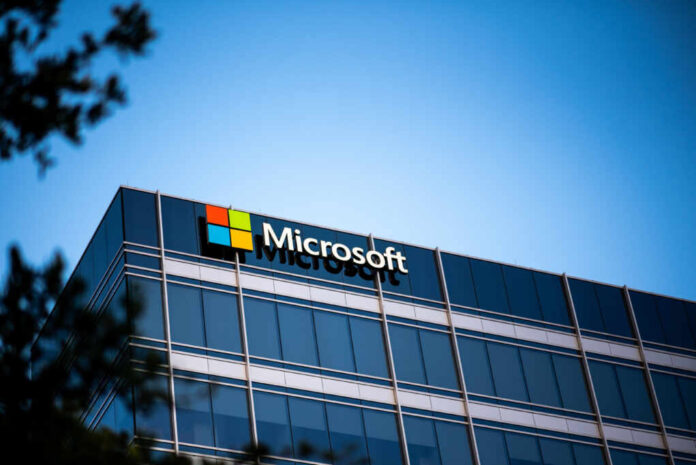
Microsoft’s bold push for AI chip independence signals a major shift that could reshape the tech giant’s relationship with OpenAI and challenge foreign semiconductor dominance.
Story Snapshot
- Microsoft plans massive investment in proprietary AI chip infrastructure to achieve self-sufficiency
- Move reduces dependence on foreign suppliers and strengthens American tech sovereignty
- Strategic shift could alter Microsoft-OpenAI partnership dynamics and market competition
- Reflects broader industry trend toward vertical integration in AI hardware
Microsoft’s Strategic Independence Push
Microsoft executives revealed plans for substantial capital investment in developing proprietary AI chip clusters, marking a decisive move toward technological self-sufficiency. The leaked meeting details indicate Microsoft’s leadership recognizes the critical importance of controlling their AI infrastructure rather than relying on external suppliers. This strategic pivot addresses supply chain vulnerabilities and positions Microsoft to compete more effectively in the rapidly evolving AI landscape. The initiative demonstrates Microsoft’s commitment to reducing dependencies that could compromise their competitive advantage or operational stability.
Microsoft to spend heavily to build its own AI chip cluster and become 'self-sufficient,' AI CEO says in leaked meeting https://t.co/CySl4cm6FT
— Insider Tech (@TechInsider) September 11, 2025
The investment represents more than cost optimization—it signals Microsoft’s determination to control the entire AI technology stack from hardware to software. Microsoft’s chip development initiative could significantly impact their current partnerships, particularly with OpenAI, as the company gains greater control over the infrastructure powering AI applications. This self-reliance strategy aligns with broader American interests in reducing dependence on foreign semiconductor manufacturers.
Watch: Microsoft signs multi-billion-dollar deal with AI infrastructure firm Nebius – YouTube
Partnership Implications and Market Dynamics
The chip independence initiative emerges as Microsoft and OpenAI navigate evolving partnership terms that already show signs of strategic divergence. Microsoft’s substantial investments in OpenAI since 2019, totaling over $13 billion, granted exclusive access to advanced AI models while maintaining infrastructure dependencies. The new chip development strategy could fundamentally alter this dynamic by giving Microsoft greater leverage in partnership negotiations and reducing OpenAI’s influence over infrastructure decisions. This shift reflects Microsoft’s growing confidence in their AI capabilities and desire for operational autonomy.
Recent partnership modifications between Microsoft and OpenAI already demonstrate both companies’ pursuit of greater flexibility and independence. OpenAI’s ability to diversify infrastructure partnerships, combined with Microsoft’s chip self-sufficiency goals, suggests a natural evolution toward more balanced relationship terms. The chip initiative positions Microsoft to offer improved services to enterprise customers while potentially reducing long-term costs associated with external hardware procurement. This strategic repositioning strengthens Microsoft’s competitive position against rivals like Google and Amazon in the AI services market.
National Security and Economic Benefits
Microsoft’s chip development initiative addresses critical national security concerns about America’s dependence on foreign semiconductor suppliers, particularly those from potentially hostile nations. The investment in domestic chip production capabilities strengthens American technological sovereignty and reduces vulnerabilities to supply chain disruptions or geopolitical tensions. The initiative could create high-skilled American jobs in advanced manufacturing and engineering sectors.
The broader implications extend beyond Microsoft’s corporate interests to encompass national competitiveness in emerging technologies. American companies controlling their own chip production reduces reliance on foreign manufacturers who may prioritize their own national interests. This strategic investment demonstrates how private sector initiatives can advance national security objectives while maintaining free market principles. The chip independence strategy positions American companies to lead global AI development without compromising security or operational control to foreign entities.
Sources:
Microsoft-OpenAI Partnership Special Report
Microsoft and OpenAI Extend Partnership
Microsoft and OpenAI Evolve Partnership
OpenAI Wikipedia

























